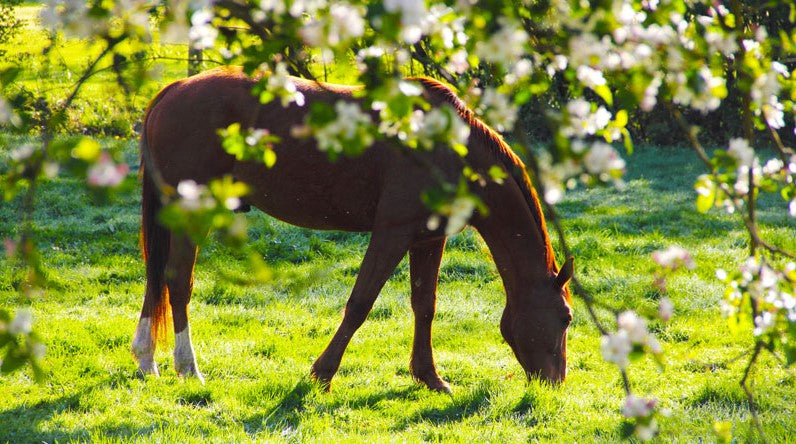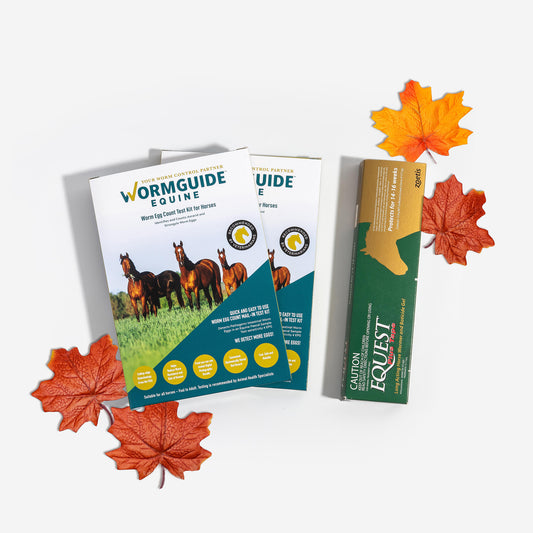
Rural myths? Misconceptions? come from good intentions, unintentional errors, misinformation or even profit motivation and when it comes to the worming of horses there are plenty of them.
In this era of modern worm control to slow the resistance disaster, many horse owners understand the need to faecal egg count test for the presence or absence of worm eggs, types of eggs, number of eggs and to check if the worming product used really kills the egg laying worms. But many still cling to the old way of worming horses.
With the help of the Deworm Debunking videos by Dr Martin Nielsen, Professor at the Equine Gluck Research Centre, Co-editor in Chief for the Journal Veterinary Parasitology and one of the world’s foremost equine parasitologists, let`s get to the bottom of some of the myths and misconceptions.
We consulted with our WormGuider vets to help with our debunking, read on to sort out the scientific fact from fiction.
Worming horses will eradicate all worms
For several decades the general goal of deworming was to eradicate worms from horses.
This not only was impossible but also counterproductive because aggressive deworming efforts resulted in widespread levels of dewormer resistance – worms that are impossible to kill.
Mother Nature isn`t going to let her horse worms be eradicated without a fight– that should come as no surprise.
Faecal egg counts minimise the risk of parasitic disease – conditions in which worm levels are high enough to cause symptoms such as colic.
All horses need worming every two months year-round
Once upon a time in the 60`s horses went on a two monthly deworming schedule which was based on the specific lifecycle of the deadly large strongyle (bloodworm) and it worked. These worms caused severe damage and it wasn`t pretty – the regular deworming had all but wiped them out .
But that worming schedule somehow became an ingrained ritual for decades to come and even today horse owners cling to the old way of deworming horses – nuke all the other types of horse worms every 8 weeks. Well, that doesn`t work because they have different lifecycles.
By hammering horse worms with chemicals, just puts more pressure on them to adapt faster, survive treatments and breed to make more resistant worms, and that`s exactly what has happened. Worming failures are happening to all the deworming products on the market.
To save our horses and future horses, equine scientists are calling for urgent change - abandon the two monthly year-round worming.
Faecal egg counts tell you about your horse`s worm egg shedding level so you know how often your horse needs to be wormed.
Here's a cool video from Dr Martin Nielsen definitely worth a watch. Click here.
Rotation between wormers prevents resistance
Rotation does not prevent dewormer resistance. The long - held practice of treating horses with products of different chemical classes each treatment – has not prevented resistance the way it was once thought it would.
It was a theory based on logic with no scientific evidence - under the general rationale that if one dewormer didn`t kill the worms, another would.
So the rotational deworming schedule will keep making things worse. The worms will become more and more multi-drug resistant, and we risk not having anything left that works, when horses really need it.
Besides there is so much dewormer resistance now that often there is nothing to rotate between.
Faecal egg counts support treating your horse right. Click here to watch and learn more from Dr Martin Nielson.
All horses on the same horse property should have the same worming strategy
The modern worm control protection for horses that share the same environment is called selective or targeted worming which is based on evidence from faecal egg counts.
Selecting horses that require more worming than other horses can slow down the progression of devastating resistance, better for the environment, prevents unnecessary worming of horses, and in most cases even saves you money in the long run.
Without quality faecal egg counts there is no strategy.
Best time to worm horses is at the first frost – the killing frost
Worm eggs and worm larvae (immature worms) that live in the horse`s environment do well in cold conditions and frost does not kill them.
The best time to worm horses is during the seasons of peak transmission with an effective wormer for horses.
Faecal egg counts test what you are doing. If you don`t test the efficacy of the dewormer you use over and over, how do you know it actually works?
Feel like watching another quick video? Click here
The all-round worming product treats every type of worm inside horses
That belongs in the past. Due to wormer resistance, some wormers work and some don`t against some worms but not others and some wormers may still work but with reduced efficacy or not at all.
A lot of people are using wormers for horses that don`t work. But they will never know if they never check.
Faecal egg count testing helps you select the wormer for your horse carefully and tells you how well your chosen treatment is working.
The information on every worming product label is current and up to date
Chances are that the label claim on the worming product will tell you how the product worked when it was first introduced on the market.
Be careful reading the labels because often it does not represent the current levels of resistance. Resistance only goes one direction, it gets worse, and the efficacy of worming products decline every year. So, the only way to know the truth is to faecal egg count test.
Then you will know what worming product works to protect your horses and what doesn`t.
There are many worming failures occurring, we see it every day.
Reliable faecal egg count (FEC) evidence is the best guide for choosing an effective worming product for your horses.
Last video promise! but so worth the watch. Click here
So now what?
What is a responsible and concerned horse owner to do?
It`s easy -the most important thing you can do is to faecal egg count test your horses and monitor them for the useful information you need to develop an ongoing effective worm control program that works.
At WormGuide, science and expert advice are at the core of everything we do to keep your horse happy and healthy for a better future.
Our complete system for your horse`s worm control comes with an eco-friendly Kit for proper integrity storage to mail in your horse`s poo for high-tech testing, easy to read results with a colour photo for proof of the type and number of eggs, and your free What do my Results Mean? Guide with your horse`s egg count result.
And if your veterinarian isn`t available to help you change to or assist with your modern worm control program, you can turn to our expert veterinarians in equine parasitology and epidemiology through our telehealth vet consultancy service for WormGuiders.










